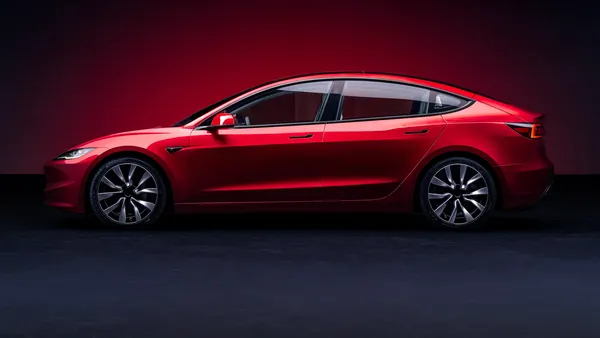Editor's note: This story is part of the WardsAuto digital archive, which may include content that was first published in print, or in different web layouts.
The history of diesel engines for passenger cars in the United States is painfully short. They left as quickly as they arrived 20 years ago during the push for fuel-efficient vehicles.
Diesels failed for a lot of reasons. They were unreliable. They were noisy and slow-revving. They left a wake of dense, black smoke. They stunk, literally.
Today, diesel technology has come a long way. Although they still do not burn as clean as gasoline engines, diesels have become quieter, more dependable, cleaner and, with the help of direct-injection, solid performers.
The developments provide a glimmer of hope for diesel suppliers, including Robert Bosch GmbH, which has a 71-year relationship with diesel injection in motor vehicles. The company has helped refine diesel technology and wants to be a top player should diesels suddenly sweep into popularity.
Bosch projects a 38% increase in the worldwide diesel market, from 9 million units in 1997 to 12.5 million units in 2005.
Look deeper, however, and the projections are less optimistic. When taken as a percentage, Bosch's figures indicate that diesels will make up 20% of all vehicles produced worldwide in 2005, up only slightly from 17% in 1997.
This year, Bosch is investing more than $600 million worldwide in research and development and in expanding its diesel fuel-injection operations, a two-thirds increase over 1997, says David Robinson, executive vice president of Bosch's diesel fuel-injection systems.
He says a key challenge in expanding the diesel market lies in the United States, where diesels made up a scant 2% of the passenger cars and light commercial vehicles produced in 1997. Bosch projects that figure will grow to 4% in 2005.
"If we can collectively move some product into the U.S. and demonstrate it for consumers, I believe their popularity will spread," Mr. Robinson says. "If we move it in, I think we will build a volume based on performance."
So the challenge lies with marketers, who have to convince American drivers that diesels deserve another chance.
Will Bosch play a role in that campaign? Although the company has as much at stake as anyone, Mr. Robinson says such a marketing campaign rests with OEMs. He did say, however, that Bosch could work with OEM marketing staff in developing a strategy.
Bosch's latest-generation high-pressure electronic injection products, such as common rail and unit injectors for passenger cars, offer improved fuel consumption, noise, vibration and harshness (NVH) and particulate emissions.
The company even predicts that by 2005, particulate emissions for diesels will be so low they will match the microscopic dust that comes off tires in the course of normal wear.
Even if diesels don't take off in the United States, Bosch is counting on growth in emerging automotive markets such as China. About two-thirds of Bosch's $3.4 billion in annual diesel component sales worldwide comes from outside Germany.
In Western Europe, where regular unleaded gasoline costs more than $3 per gallon, fuel-efficient diesels have continued to be quite popular. Bosch projects 31% of the passenger cars and light commercial vehicles produced in 2005 in Western Europe will be diesel, compared to 26% in 1997.
Bosch says Western Europe is in the middle of converting from previous-generation indirect-injection diesels to the (usually) quieter and more fuel-efficient direct-injection diesels. In 2000, the company predicts 85% of diesel passenger cars in the region will be direct-injection, compared to only 33% as recently as 1997.
During a recent media trip to Germany, Bosch demonstrated several production vehicles equipped with DI diesels on the autobahn, taking them effortlessly - and with little noise - past 124 mph (200 km/h).
"You have to convince people that diesels are reliable, economical and fun to drive," says Bosch engineer Gunter Bassfeld as he drives a 1997 Opel Vectra equipped with General Motors Corp.'s 4-cyl. 2L Ecotec DI turbodiesel.
"Once you do that, I think there will be a market for diesels in the U.S.," says Mr. Bassfeld who is also Bosch's department manager of diesel injection systems for passenger cars.









